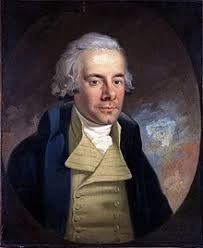The National Lottery is a national scandal. It is State-sponsored selfishness; Government-led worship at the shrine of godless gain.
Speaking ethically, gambling is immoral. It is an attempt to get something for nothing, a means of gaining a living not by honest labour but at the expense of others. It is a moral disease, a dishonest and covetous means of acquiring what belongs to others. That other, equally covetous people agree to the arrangement does not make it less immoral. When a gambler wins, many have lost. Anything that induces people to gamble with money needed for life’s necessities is wrong in principle.
Speaking politically, we now have officially-promoted greed. In backing the lottery, the Government is making immorality respectable. In the wake of the ‘Back to Basics’ fiasco and the more recent ‘sleaze’ crisis, who can doubt the moral bankruptcy of the present Government? Pragmatic, vote-catching politicians imagine that charitable ends can justify immoral means. But where is the charity for the struggling and demoralized unemployed? They can ill afford to take part. Tempted by a delusive ‘get rich quick’ policy, they are cruelly crushed by a corrupt consumerism. Those who think the lottery is harmless fun should remember that addictions have small beginnings which can grow with alarmingly tragic results. The lottery can only aggravate what is already a nationwide gambling epidemic. Next to blatant robbery, it is the basest form of wealth creation.

Speaking personally, I grew up in a home made miserable by betting football pools, raffles, dogs, horses, the lot. My father was a compulsive gambler. Forced to work, my mother lived with constant anxiety over money. Unholy rows always erupted when the gas and electric bills arrived. More than once, I used my hard-earned paper and milk-round money to replace crockery smashed by my father during his drunken, penniless rages. I believe all this anxiety contributed to my mother’s early death from cancer at the age of forty-four. Even after her death, I sold my Zeiss camera to help my father with his debts. Shame and pity prevent me from revealing more.
Speaking religiously, we face a social crisis with the collapse of the old Protestant work ethic in this country: work and earned income were once considered virtuous. Earnings from gambling were considered vicious. It was dirty money. When there was a strong Christian faith, there was contentment and trust in God when times were hard. There is now an idolatry of wealth. Gambling is a symptom of discontent and unbelief. It is a violation of one of God’s first commands to the human race: ‘In the sweat of your face you shall eat bread’ (Genesis 3:19). It effectively violates the commandments ‘You shall not steal’ and ‘You shall not covet’ (Exodus 20:15, 17). It is inconsistent with ‘You shall love your neighbour as yourself’ (Matthew l9:l9). That is why this is fundamentally a religious issue. It is all about what makes us ‘tick’, what values ‘drive’ us, where we look for ultimate satisfaction, what ‘god’ we really trust in.

The apostle Paul said: ‘But godliness with contentment is great gain. For we brought nothing into this world and it is certain we can carry nothing out. And having food and clothing, with these we shall be content’ (1 Timothy 6:6-8). The Lord Jesus Christ said, ‘Seek first the kingdom of God and his righteousness, and all [necessary] things shall be added to you’ (Matthew 6:33). He is also warned, ‘For what shall it profit a man if he gains the whole world, and loses his own soul’ (Mark 8:36). In the hard-hitting parable of the rich fool (Luke 12:15-21), Christ said, ‘Take heed and beware of covetousness, for one’s life does not consist in the abundance of the things which he possesses.’ To those who live and die worshipping wealth, facing a Christless eternity, the Saviour concluded, ‘You fool! This night your soul will be required of you; then whose will those things be which you have provided?’ No less hard-hitting than his Master, the apostle James wrote with timeless power and relevance: ‘Come now, you rich, weep and howl for your miseries that are coming upon you! Your riches are corrupted, and your garments moth eaten. Your gold and silver are corroded…You have lived on the earth in pleasure and luxury; you have fattened your hearts as in a day of slaughter’ (James 5: 1-5)
In the home atmosphere I have described, I became an evangelical Christian, partly through my mother’s then nominal religious influence. A year before she died, I had the joy and the privilege of leading her to Christ. In that faith and joy she died. At the end of the day, my mother, because of salvation in Christ, backed an eternal winner! Tragically, my father continued to back losers right to the end. The lesson is too obvious. Gambling is a mug’s game! However, my father still had a better chance of winning on the horses than the most optimistic patron of the National Lottery! The odds are heavily stacked against winning a significant prize: 14,000,000 to 1 for the jackpot; 54 to 1 for a small prize. Never in the history of gambling have so many fools been deceived so easily by so little!
Are anti-lottery Christians killjoys? It all depends what you mean by ‘joy’. We are no more killjoys than those who seek to stop ‘joyriders’. If gambling is immoral, then the so-called ‘joy of winning’ is immoral joy! In fact, all this is to trivialize joy. The word is being debased. The word ‘fun’ is perhaps more appropriate. But the question then becomes whether there will be any ‘fun’ when the ‘morning after’ disappointment comes, or when winners are besieged with scroungers wanting a handout! No, Christians are not killjoys. Indeed, they are promoters of ‘solid joys and lasting treasure’ through the Lord Jesus Christ-the everlasting riches of sins forgiven, peace with God and heavenly bliss for those who are justified by faith in him alone. This is the Bible’s message of salvation: ‘In your presence is fulness of joy; at your right hand are pleasures for evermore’ (Psalm 16:11). What of living in this world? The joys of Christians are not confined to the spiritual joys of the gospel. There are also the joys of providence and sharing with the needy. For those who trust in God rather than idolize his gifts, there is the promise of God’s constant care-and contentment to go with it. But the priorities and conditions are clear: we must not ‘trust in uncertain riches but in the living God, who gives us richly all things to enjoy’ (1 Timothy 6:17).

Speaking ecclesiastically, there is a sinister aspect to the religious issue too. Gambling in all forms is commonplace in Roman Catholic countries like Spain, Italy, Ireland, etc. It is one of the features of Rome’s ambivalent attitude towards wealth, a symptom of her spiritual decadence. Britain’s first lottery of 1826-in the decadent days of George IV – was effectively killed off by influential evangelical political leaders like William Wilberforce, themselves representatives of a growing godly consensus created by the Methodist revival of the previous century.
As Protestant apostasy and ecumenism advance, and – despite the moral scandals of priests – as Rome’s influence grows, it is no wonder that the new lottery is so popular. Some of the worst features of Roman Catholic communities are on the increase, not least the connection between gambling and crime. On the very day the National Lottery was launched (Saturday 19 November 1994), the front page of The Times drew attention to the criminal factor: ‘Police monitor lottery winners to beat drug cash laundering’. Lorraine Boettner’s thirty year-old assessment is by no means defeated: ‘Historically, organized gambling has meant organized crime. Recently a high ranking legal expert declared that gambling is the life-blood of organized crime, and that if gambling could be wiped out much large-scale crime would die for lack of sustenance. Organized gamble ing flouri shes in a twilight zone of society where coercion and corruption are the methods of doing business. An evil atmosphere envelops such a community and eats into the fabric of law and order. The bribery and corruption of officials, with attendant social abuses, is a common result. Yet in the United States, for example, the Roman Church, which receives substantial revenues from gambling games, has not only failed to oppose legalized gambling but has itself frequently run foul of State anti-gambling laws. On the other hand, Protestant groups, which believe that it is a sin to gamble, have taken the lead in having bingo, and particularly professional gambling, outlawed’ (Roman Catholicism, 1962, p. 470).
Concluding evangelistically, a gambling nation virtually bets that there is no God, no life beyond death, no judgement to come, no everlasting punishment, no need of salvation. If these gamblers are right, there is nothing to be afraid of. But if they are wrong, all the jackpots of the universe could not insure one immortal soul against the wrath of God.
Alan C. Clifford
The author is pastor of Norwich Reformed Church. He recently took part in discussions on gambling and the National Lottery on Anglia and Central TV and a BBC Radio 4 call-in programme.




